Petrochemicals – Water-soluble-PVA 12-09-2022 - Arhive
Petrochemicals – Water-soluble-PVA
-PET-Bottle-Grade – Petrochemicals
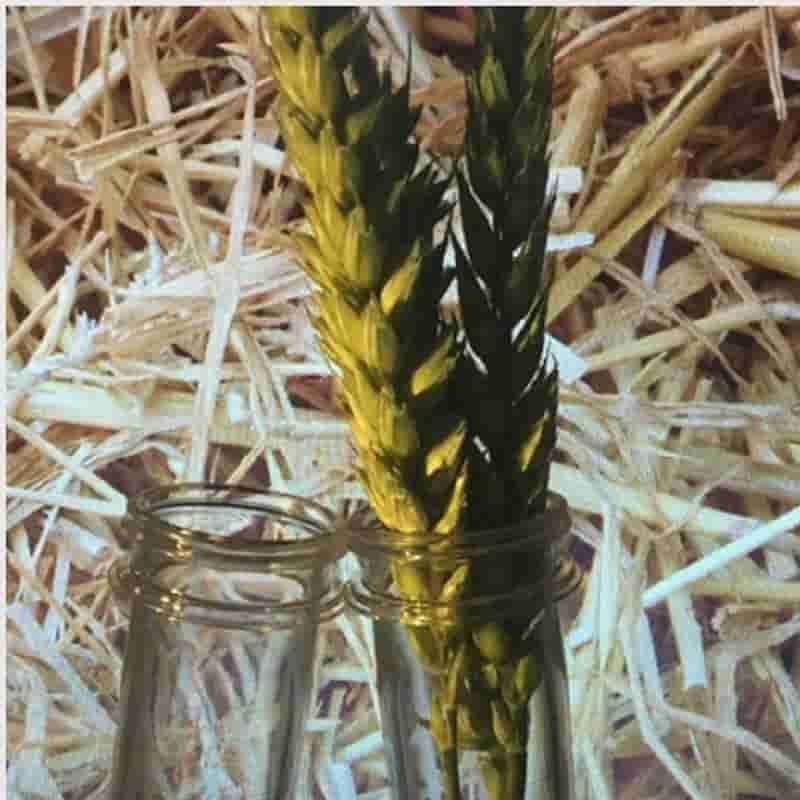
Crude Oil Prices Trend

-Europe chemicals markets ‘starting to collapse’ on faltering demand
Shifting market fundamentals are changing the landscape of Europe’s chemicals sector, with demand falling sharply and the lack of buying appetite characterising negotiations.
The focus has pivoted from pressure on supply chains to meet the clamour for material; after the traditional summer slowdown, European producers have returned to find demand is muted as inventory levels remain high. Petrochemicals – Water-soluble-PVA
DEMAND EBBING AWAY
Gas supplies in Europe remain under threat, which in turn is pushing up production costs.
Coupled with weak demand, this is leading to some manufacturers opting to slow production.
“Markets are starting to collapse. The only good thing is that we are all sitting in the same boat,” said one acrylonitrile (ACN) buyer.
This sentiment was echoed across the ACN market with both buyers and producers talking of reducing run rates in the fourth quarter.
“We are now thinking of supplies for next year and have started talks with suppliers. It is going to be a tough year for them,” said another ACN buyer.
“Those product routes that are a couple of synthesis steps away from refinery were affected the most, for the time being at least. But it will not stop the impact also on products higher up the value chain,” said Oliver Schwarz, analyst at Hamburg-based Warburg Research.
“It will just take a bit longer for this to happen.”
This sentiment is echoed by the pessimistic sentiment characterising the olefins markets, with no pickup in demand expected for September.
The can could be kicked even further down the road.
PRODUCTION SLOWING IN EUROPE
An integrated olefins player said it was having discussions to decide what to do, arguing it could try to reduce offtakes and postpone into next year.
“But everyone wants to postpone. Maybe there are some works that can be done, so plants can be shut down,” it added. Petrochemicals – Water-soluble-PVA
Propylene appears keenly impacted by the current dynamics, with one derivatives producer saying it has considered cutting production completely at one European site during November and December.
Another propylene derivatives producer said that they had already reduced run rates in August, but added there was no signs of a recovery and, in turn, it may have to pull back even further for the rest of the year.
“The gas and electricity prices kill the business. We have already had the first businesses closed or insolvent. Sentiment is at an all-time low,” the propylene derivatives producer added.
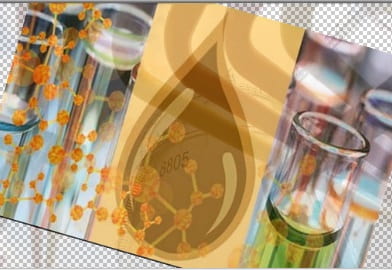
-Netherlands is the largest exporter of plastic waste in Europe
Last year, the Netherlands was the country in the European Union that exported the most plastic waste to countries that may not be able to process it properly, the Plastic Soup Foundation reported Friday after its own investigation. According to the foundation, the country therefore plays a major role in “the shadowy trade in plastic waste.”
Globally, only Japan and the United States exported more plastic waste to countries that were not part of the Organisation for Economic Co-operation and Development in 2021. These are countries that often do not have the right infrastructure to properly process that waste, such as Indonesia, Vietnam and Malaysia. In many cases, the waste is dumped in the open air and incinerated, after which harmful substances and plastic residues can affect the environment and human health.
The Netherlands exported a total of 200 million kilos of waste, of which 70 million kilos went to Indonesia and 64 million to Vietnam. The Plastic Soup Foundation has mapped the numbers using a database of import and export information from nearly 200 states or regions of the world.
According to the foundation, the export of plastic waste to vulnerable countries is only increasing, even if the rules are tightened. “In 2021, there was even more than a doubling compared to 2020.” According to the foundation, it is unclear why the export of plastic waste is increasing. Petrochemicals – Water-soluble-PVA
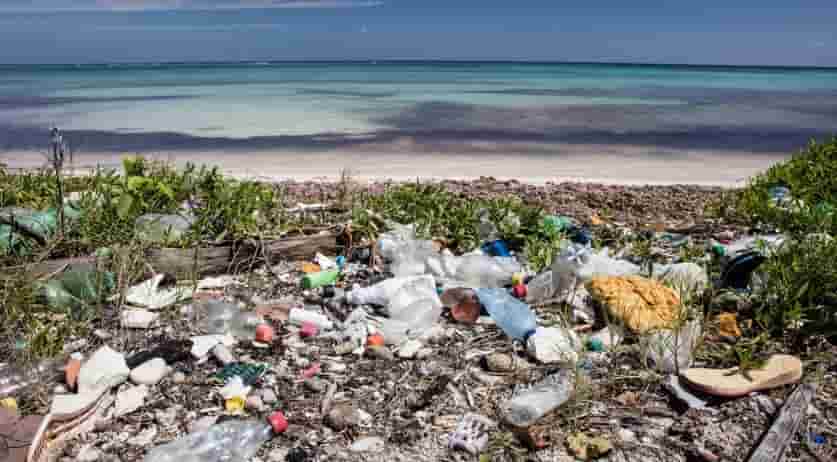
-Plan it green: The plastic bag that dissolves in water, degrades in soil
A first of its kind, the organisation, which piloted in 2019, assumes even more significance in light of the recent ban on single-use plastic in the country.
Last year Kavitha Ranjan found herself at sea after her father passed away. Not only was she dealing with a great personal loss, but was also faced with the responsibility of taking forward her father’s crusade to save the environment.
A software engineer by profession, Kavitha is realising her late father VS Veerasami’s dream of pioneering a viable alternative to throw-away plastic by spearheading Greenplast, a Coimbatore-based start-up that has created a biodegradable alternative to plastic carry bags in the form of dissolvable non-toxic, water-soluble bags and pellets. A first of its kind, the organisation, which was piloted in 2019, assumes even more significance in light of the recent ban on single-use plastic in the country.
“Water-soluble packaging is the best alternative for most single-use plastic items. We want to make a change by creating awareness about plastics, one bag at a time,” says Kavitha. Made using water-soluble polymer PVA, processed starch, vegetable oil derivatives and other non-plastic additives, their products ellets, films and bio bags—dissolve completely in water, both hot and cold, without leaving any traces. Their bags also degrade when put in mud due to the reaction of microorganisms.Petrochemicals – Water-soluble-PVA
“The base for any material that will work as a replacement for plastic, and behaves like plastic, should be a polymer. Our base is the exact blend of PVA and processed starch, apart from other non-plastic ingredients such as vegetable oil,” she says.
The idea to find an environment-friendly alternative to plastic first struck Kavitha’s father in 2013. He was running a wall putty manufacturing business at the time, and was bothered by the plastic waste piling around him. He decided to set out on a mission, seeking ideas and researching extensively to finally launch GreenPlast in 2018.
“For his research, he visited Japan, Germany, Indonesia, Malaysia and China to understand the plastic replacement products and discovered that there is a technology to make daily-use organic bags, but the primary raw materials for manufacturing these bags—biodegradable pellets—are unavailable in the Indian market,” she says, adding that it was this gap that her father wanted to fill.
To figure out the products to create water-soluble pellets that could be used as alternatives to plastic bags, he tried out different combinations of ingredients to finally arrive at industrial starch, water-soluble polymers, and other non-plastic elements. According to Kavitha, the bags do not leave a residue of microplastics as they are totally devoid of plastics.

-Acquisition of Herbold Meckesheim completed
The acquisition of the engineering company Herbold Meckesheim, has formally been completed. Herbold Meckesheim will be integrated with Coperion’s recycling product lines into its new Recycling Business Unit that plans to offer complete solutions for plastics recycling processing.Petrochemicals – Water-soluble-PVA
Coperion intends to combine its strengths as an international industrial and technological leader with Herbold Meckesheim, a specialist in mechanical recycling of plastics and plastic waste, and together they will form a united business approach. Herbold Meckesheim will continue to operate at its existing location and retain its name. Both companies will combine their capabilities in the field of recycling and integrate to build modular systems and plant solutions that cover a broad sector of the circular economy, as well as large sections of the globe with their combined sales and service network.
The Recycling Business Unit plans to offer complete solutions leveraging both Coperion and Herbold Meckesheim’s complementary technologies. From mechanical processing — shredding, washing, separating, drying, and agglomerating of plastics — to bulk material handling, feeding and extrusion, as well as compounding and pelletising, this Business Unit encompasses the complete process chain.
With their combined global service network that supports installations and startups, competent and rapid service is also available on site, states the company. Additionally, state-of-the-art test centers for product development as well as customer trials are available to customers. Before interested parties make significant investments, they can undertake in-depth testing of every process step in the test labs.
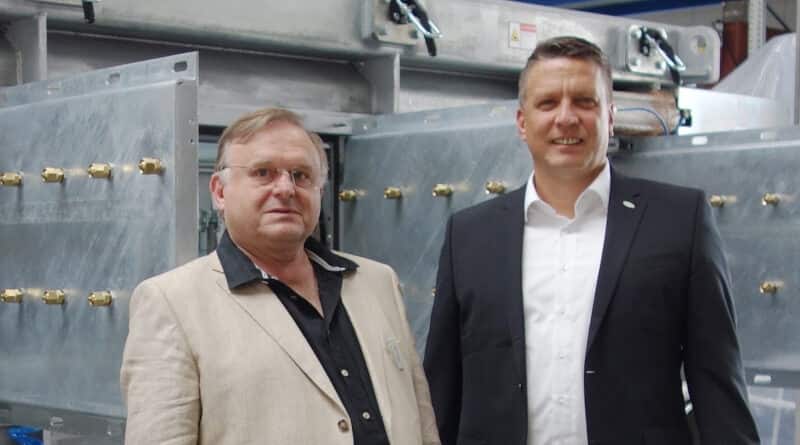
-VPET USA, LLC Establishing Operations in Spartanburg County
VPET USA, LLC, a leading manufacturer of wide-mouth polyethylene terephthalate (PET) bottles and containers, announced plans to establish operations in Spartanburg County. The company’s $10.8 million investment will create 40 new jobs.
Founded in 2001, VPET USA, LLC manufactures custom and stock PET containers for the nutrition, food and beverage, personal care, pharmaceutical and health care industries. As a worldwide PET packaging leader, the company produces a vast portfolio of Bisphenol-A (BPA) free PET bottles and wide-mouth jars. VPET USA, LLC offers a quick, effective and flexible approach to manufacturing PET plastic containers – providing its customers a distinct advantage for choice, quality and speed to market.
Located at 861 Victor Hill Road in Greer, VPET USA, LLC’s Spartanburg County operations will initially serve as a blow molding and injection molding facility to supply key customers in the Southeast. Petrochemicals – Water-soluble-PVA
The new facility complements four strategically located manufacturing facilities in California, Illinois and Texas, as well as in-house production facilities in various locations around the globe.
Operations are expected to be online in October 2022. Individuals interested in joining the VPET USA, LLC team should visit the company’s careers page.
The Coordinating Council for Economic Development has awarded a $150,000 Set-Aside grant to Spartanburg County to assist with the costs of building improvements.
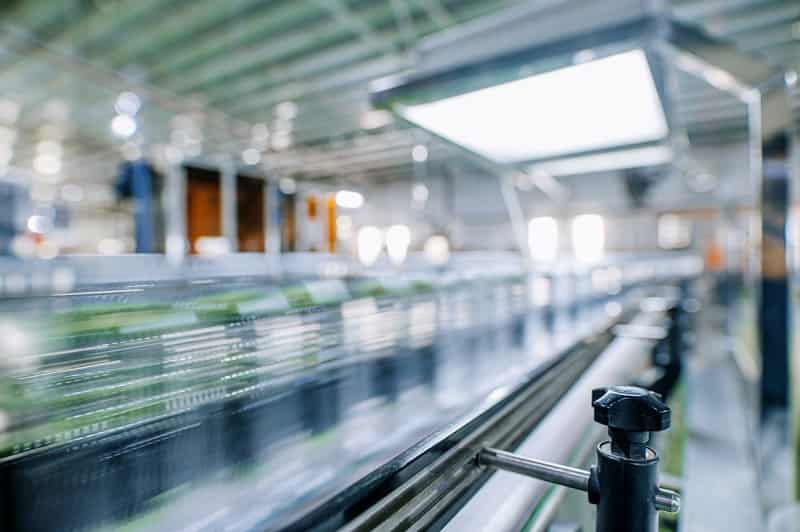
Prtrochemicals – Water-soluble-PVA
-Lyondell Basell New CirculenRenew Polymers for Primary Pharmaceutical Packaging
LyondellBasell together with Röchling Medical have announced a step forward towards their ambition to advance the circular economy. The companies created eye drop containers made by Röchling Medical using CirculenRenew polymers.
LyondellBasell CirculenRenew polymers offer a variety of polypropylene (PP) and polyethylene (HDPE and LDPE) grades that are equivalent to virgin resin quality. LyondellBasell CirculenRenew gradesupport the use of renewable feedstocks from bio-based sources that are not in competition with food sources.
This is an important milestone for Lyondell Basell which has an ambitious goal of producing and marketing 2 million metric tons of recycled and renewable-based polymers by 2030
LyondellBasell and Röchling have collaborated closely to find the right grade for Röchling’s eye drop containers.Petrochemicals – Water-soluble-PVA
After several trials, the project team has chosen a Low Density Polyethylene (LDPE) not only because of its high purity, which is necessary for pharmaceutical applications, but also because it was ideal for use in blow molding.
“In such a highly regulated environment as the pharmaceutical industry, driving change towards more sustainable solutions for primary packaging is a challenge, ” says Grit Pasche, Röchling Group’s global director quality & regulatory affairs. “Therefore, CirculenRenew was the right choice for us. These renewable-based polymers offer the same properties as fossil-based alternatives in terms of product performance.”
This advancement is possible via the principle of mass balancing. The International Sustainability and Carbon Certification (ISCC) Plus certification provides traceability of the renewable content along the supply chain and verifies that the mass balance accounting follows predefined and transparent rules.

-Reliance Industries acquires polyester firm for ₹1,592 crore. See full details
Shubhlaxmi Polytex Ltd produces polyester fibre, yarns and textile-grade chips through direct polymerisation as well as extruder spinning with value addition through texturising. It has a continuous polymerisation capacity of 2,52,000 tonnes per year.
The Reliance Industries- Shubhlaxmi Polytex Ltd deal is subject to approval of the Competitiorn Commission of India (CCI) and the respective lenders of SPL and SPTex.
Billionaire Mukesh Ambani’s Reliance Industries Ltd has acquired polyester chips and yarn manufacturer Shubhalakshmi Polyesters Ltd for ₹1,592 crore, the company said in a stock exchange filing.Petrochemicals – Water-soluble-PVA
“Reliance Petroleum Retail Ltd (under name change to ‘Reliance Polyester Ltd’), a wholly owned subsidiary of the company, today executed definitive documents to acquire polyester business of Shubhalakshmi Polyesters Ltd and Shubhlaxmi Polytex Ltd for cash consideration of ₹1,522 crore and ₹70 crore respectively, aggregating to ₹1,592 crore by way of slump sale on a going concern basis,” the firm said.
The deal is subject to approval of the Competitiorn Commission of India (CCI) and the respective lenders of SPL and SPTex.
The acquisition will strengthen the textile manufacturing business of Reliance.
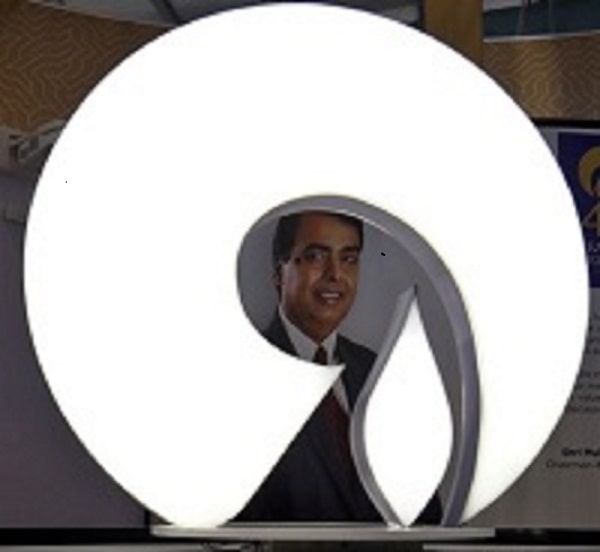
-Polyester Follows Fish from Sea to Table
Japanese company develops process for recycling polyester fishing nets.
Teijin Group announced development of a process aimed at diverting discarded polyester fishing nets from landfills, which add up to 1300 tons of waste/yr in Japan alone.
The process begins with the cleaning and drying of used fishing nets, which removes odors left over from its life at sea. Petrochemicals – Water-soluble-PVA
Organic solvents are then used to remove coatings from the polyester.
To improve heat resistance and durability, the polyester is processed with other recycled plastics.
The resulting resin pellets can be used for products such as stationery and food trays.
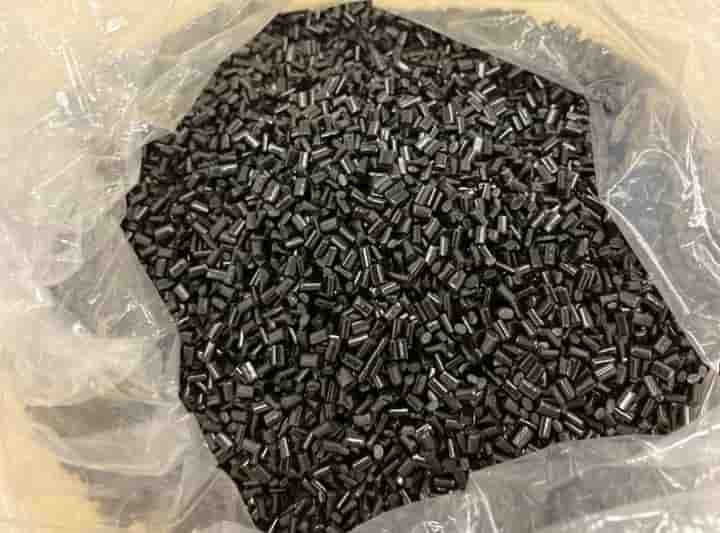
Petrochemicals – Water-soluble-PVA
